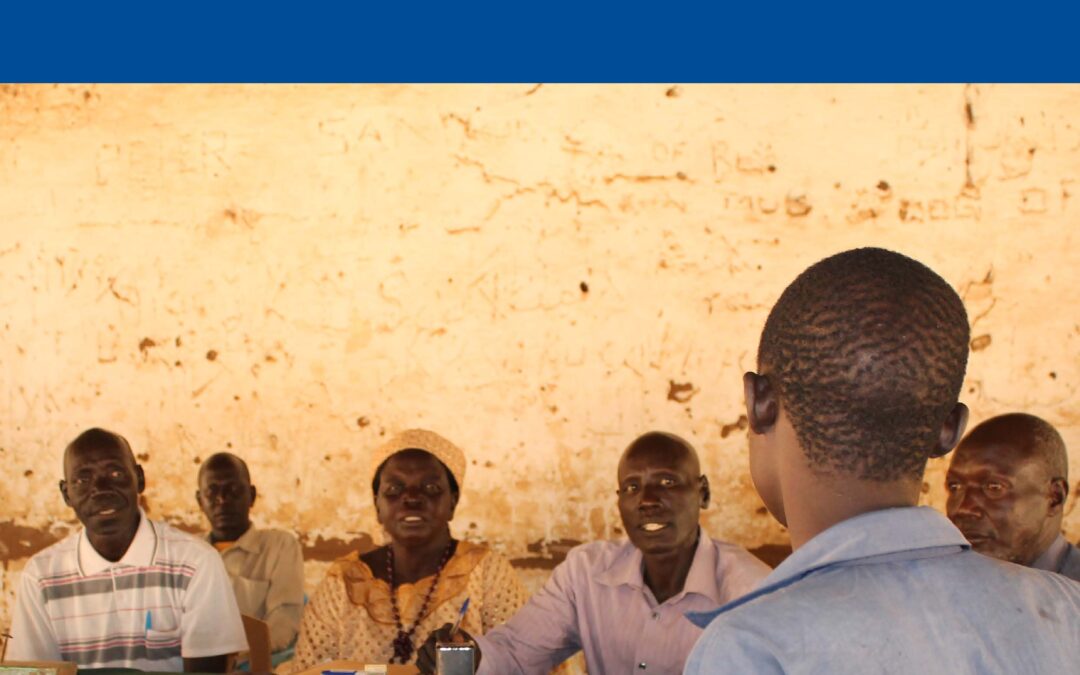
Nov 29, 2019
The ICJ today publishes an expanded and updated version of Indigenous and Other Traditional or Customary Justice Systems: selected international sources.
The compilation is a unique practical resource for practitioners in official State justice systems and indigenous, traditional or customary systems.
It is also intended to assist other community members, government officials, development practitioners, civil society organizations, and academic and other professionals who engage with such justice systems.
The compilation is being published as part of an ongoing project on the relationship between indigenous and other traditional or customary justice systems and human rights, access to justice, and the rule of law.
Among the sources included in the compilation are global and regional treaty provisions, UN and other declarations, and the jurisprudence and recommendations of Committees and Special Procedures established by treaties and the UN Human Rights Council.
The sources are organized by themes including the rights of women, rights of children, the role of judges and lawyers and the administration of justice, the rights of indigenous peoples, the rights of minorities, and transitional justice.
This revised edition incorporates new developments since 2018, including the landmark report of the UN Special Rapporteur on the Rights of Indigenous Peoples, and expands to cover certain topics more comprehensively, particularly with respect to indigenous rights.
The ICJ’s multi-year project has included global and Asia-Pacific and Africa regional consultations, and continues in 2020 with a concluding Global Forum in Geneva, and culminating with the publication by ICJ of detailed legal and practical guidance.
The guidance will seek to assist all actors involved in implementation and assessment of relevant targets of Sustainable Development Goal 16 on access to justice for all and effective, accountable and inclusive institutions, as well as Goal 5 on gender equality, including: decision-makers and other participants in traditional and customary justice systems; judges, lawyers and prosecutors operating in official justice systems; other government officials; development agencies; United Nations and other inter-governmental organizations; and civil society.
The initial version of the compilation was published in January 2018 under the title Traditional and Customary Justice Systems: Selected International Sources.
Contact
Matt Pollard, Senior Legal Adviser, matt.pollard@icj.org
Download
Universal-Trad Custom Justice Compil updated-Publications-2019-ENG (updated and expanded version of the compilation, in PDF)
Cover Photo: Traditional leaders preside over a case in B-Court, Nyang Payam, Torit County, South Sudan. Photo Credit: UNDP South Sudan2016Angelique Reid ©2016 United Nations
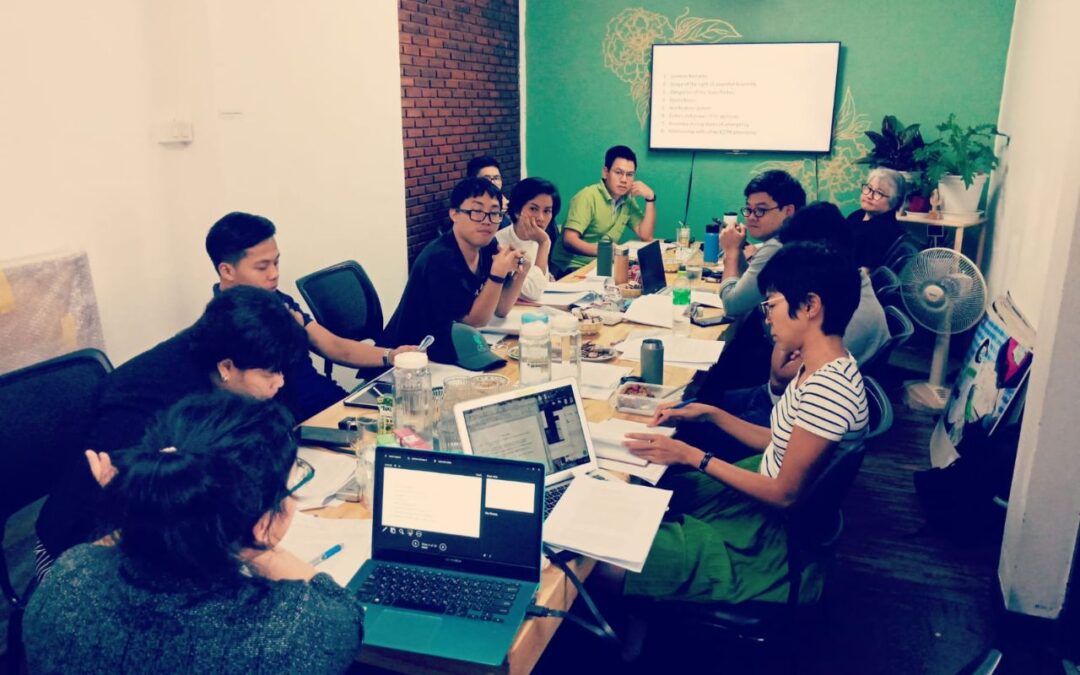
Nov 27, 2019 | Advocacy, News
On 26 November 2019, the ICJ, jointly with the Centre for Civil and Political Rights (CCPR Centre), hosted a round-table discussion on the right to peaceful assembly in Thailand. The discussion was held at the office of Thai Lawyers for Human Rights (TLHR).
Fifteen lawyers, members of civil society organizations and academics attended the discussion.
The discussion began with an introduction to the UN Human Rights Committee’s draft General Comment No. 37, which when revised and adopted will constitute an authoritative interpretation of the right to freedom of peaceful assembly, as guaranteed under article 21 of the International Covenant on Civil and Political Rights (ICCPR). Thailand is a State party to the ICCPR.
The UN Human Rights Committee – the body mandated to interpret and supervise the implementation of the ICCPR – made the draft General Comment available for all stakeholders to review between November 2019 and 14 February 2020. The Committee in its draft considers the obligations of States parties in respect of such right to peaceful assembly, including permissible limitations and duties and powers of law enforcement agencies.
During the meeting, participants discussed about Thailand’s existing law governing the exercise of the right to peaceful assembly – including the 2017 Constitution of the Kingdom of Thailand and the 2015 Public Assembly Act. The discussion also focused on comments on the draft General Comment that the participants may submit to the UN Human Rights Committee, and advocacy strategies to strengthen Thailand’s legal frameworks once the draft General Comment is adopted by the UN Human Rights Committee.
Participants identified challenges posed by in the implementation of certain domestic laws, particularly the Public Assembly Act, which may result in unnecessary and disproportionate restrictions on the right to freedom of peaceful assembly in Thailand. These included the lack of a clear definition of “an assembly”; identification of “no-go” zones for protestors; problems arising from the use of notification systems where a failure to notify the authorities of an assembly was used as basis to render participation in the assembly unlawful and for dispersing the assembly; and overbroad powers delegated to authorities to impose conditions for assemblies regulating the time, place and manner of assemblies.
At the meeting’s conclusion, participants considered ways of provided input on the draft General Comment to the UN Human Rights Committee. They also strategies to work to bring existing Thai laws in compliance with international laws and standards that regulating the right to freedom of peaceful assembly.
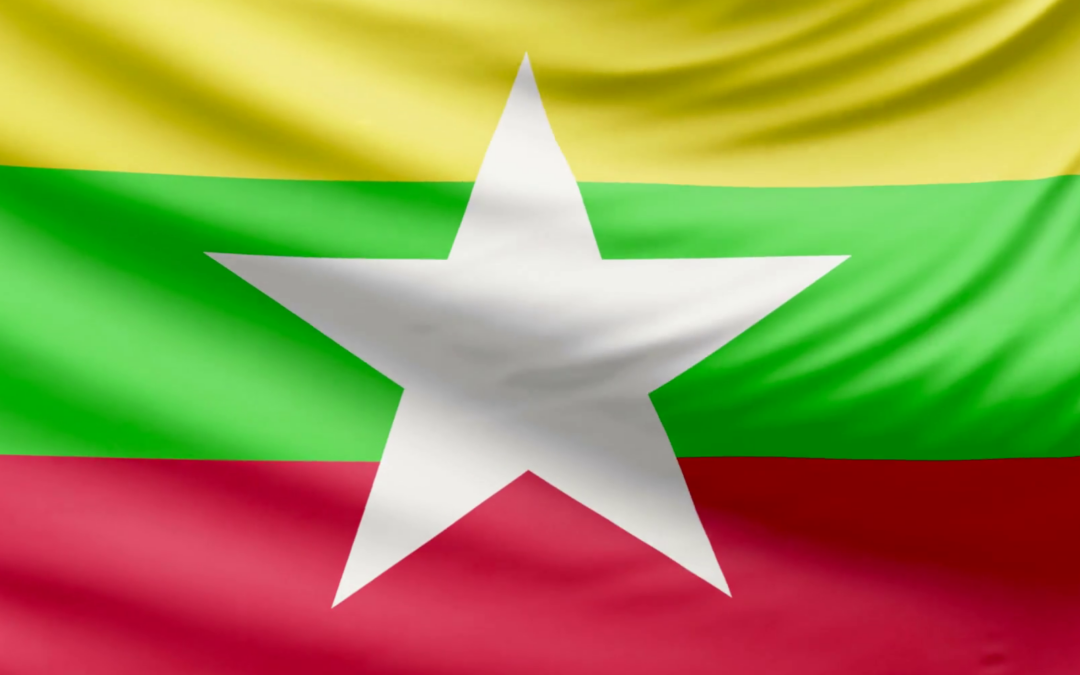
Nov 25, 2019 | Advocacy, News
The ICJ held a two-day workshop on 23-24 November 2019 in Mandalay on the application in Myanmar of international law and standards on freedom of religion and belief. Some 40 participants from across the country, including human rights defenders, religious leaders and lawyers who work on issues of freedom of religion or belief, attended the event.
The two-day workshop was conducted in order to provide a safe platform for participants to discuss pressing issues concerning the right to freedom of religion or belief (FoRB) in Myanmar, with a particular focus on protecting places of worship. It allowed participants to share challenges encountered in their spheres of activity and explore ways to address state regulations that disproportionately impact minority religions.
ICJ Associate Legal Adviser Jenny Domino introduced the international standards on FoRB applicable to Myanmar, including how FoRB affects other human rights such as the right to freedom of expression. She discussed the different constitutional approaches to protecting FoRB in Myanmar and the Philippines, and presented the applicable international standards relevant to the protection of places of worship in conflict settings. ICJ Legal Researcher Dr Ja Seng Ing shared the legal and practical challenges to protecting places of worship in Myanmar.
Based on their own independent research, the participants discussed restrictions placed on the practice of religion or belief, particularly with respect to places of worship. The participants shared challenges they encountered while working on FoRB issues, such as the shrinking civic space for inter-religious dialogue. They also discussed possible strategies to push for legislative and administrative reform to protect FoRB in Myanmar.
The workshop is part of the ICJ’s ongoing effort to convene civil society actors and lawyers in Myanmar with a view to advancing FoRB in the country, and builds on the ICJ’s regional work on this theme.
Contact
Ja Seng Ing, ICJ Legal Researcher, e: jaseng.ing(a)icj.org
Related material
Challenges to freedom of religion or belief in Myanmar, A Briefing Paper, October 2019
Primer on international human rights law and standards on the right to freedom of thought, conscience, religion or belief, January 2019
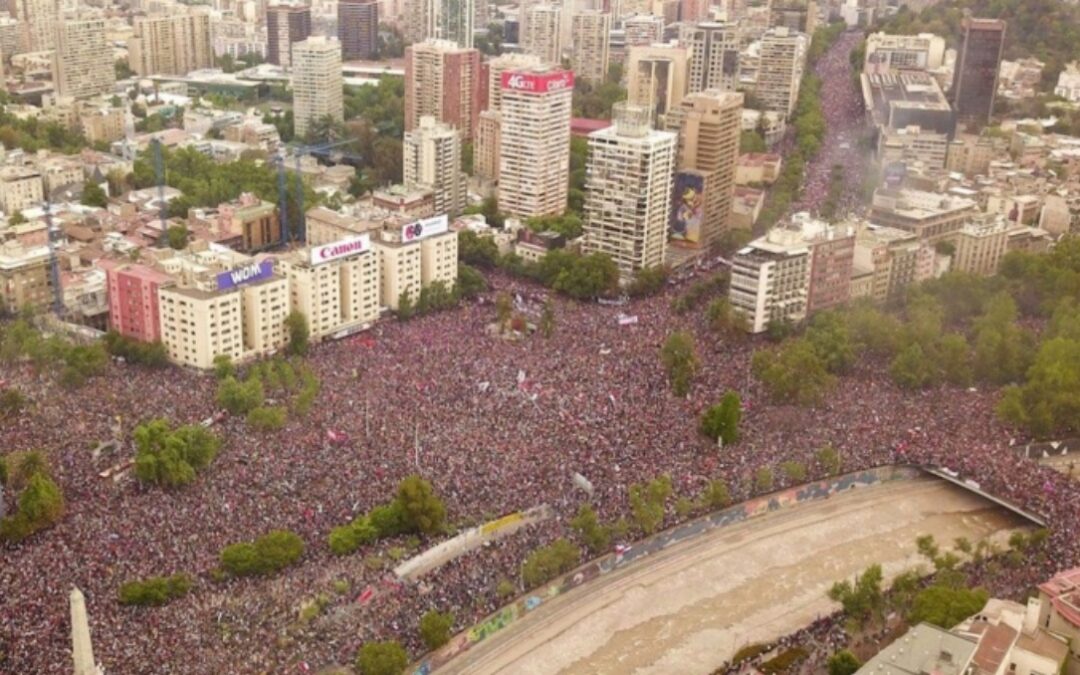
Nov 24, 2019 | Editorial, Noticias
Una opinión editorial de Alejandro Salinas Rivera, Comisionado de la CIJ (Chile)
A casi un mes de iniciadas las protestas sociales, las fuerzas políticas llegaron a un acuerdo que podría permitir abordar la crisis social evidenciada con las protestas.
Durante varios días, millones de personas salieron a las calles para solicitar reformas profundas para garantizar los derechos económicos, sociales y culturales. La mayoría de las protestas fueron pacíficas; sin embargo, algunos actos de violencia fueron perpetrados.
La reacción inicial de las autoridades gubernamentales y de otros líderes políticos no permitió abordar con seriedad las preocupaciones y las demandas ciudadanas. Además, hay denuncias sobre graves violaciones de los derechos humanos cometidas por miembros de la fuerza pública. Por ejemplo, el Instituto Nacional de Derechos Humanos (INDH) indicó que representa a 489 personas que sufrieron actos que pueden constituir violaciones a los derechos humanos, y hay más de 200 personas heridas en los ojos por balines de goma.
Acuerdo político alcanzado recientemente
El 15 de noviembre, los partidos políticos con representación parlamentaria (a excepción del Partido Comunista y de pequeños partidos de izquierda), firmaron un acuerdo político que propone un camino para abordar la crisis: la definición de un procedimiento para adoptar una nueva Constitución.
Pero, ¿por qué es tan importante esto en Chile? Porque la Constitución chilena fue redactada y adoptada en 1980 durante la dictadura militar, y aunque se le han introducido modificaciones durante la democracia (1990), todavía refleja el modelo político y social que gobierna el país. La Constitución siempre ha sido considerada como una camisa de fuerza que impide introducir cambios sociales que el país necesita, ya que otorga al Estado un papel subsidiario en la garantía de ciertos derechos económicos y sociales.
El acuerdo político alcanzado estableció una hoja de ruta para realizar el cambio constitucional. Primero, en abril de 2020 se realizará un plebiscito para preguntarle a las personas: a) ¿Quiere usted una nueva Constitución? (Aprueba/ Rechaza); y b) ¿Qué tipo de órgano debiera redactar la nueva Constitución? (Convención Mixta Constitucional o Convención Constitucional).
En segundo lugar, después de los resultados del plebiscito, se llevarán a cabo las elecciones de los miembros que integrarán el organismo encargado de redactar la nueva Constitución (octubre 2020), y después de su redacción, habrá un plebiscito ratificatorio obligatorio.
Este acuerdo político genera esperanza para que se realice un cambio que permita abordar las demandas sociales y mejorar el diseño institucional que se encarga de garantizar los derechos económicos y sociales. Sin embargo, el acuerdo por sí solo no es suficiente. Es necesario, además, tomar medidas inmediatas que permitan lograr acuerdos sustanciales y fortalecer, ahora, la capacidad institucional.
Otras acciones que deben realizarse
Además del acuerdo político alcanzado, hay otras acciones que se deben realizar. Por ejemplo, se debe:
- Adoptar acuerdos políticos específicos que hagan viable el proceso constitucional acordado y que garanticen que dicho proceso responda a las demandas ciudadanas. Así, debe modificarse la Constitución para permitir la convocatoria al plebiscito, y se debe implementar dicho mecanismo en abril de 2020.
- Adoptar políticas públicas específicas para materializar los derechos económicos y sociales que no requieren cambios constitucionales; solo requieren voluntad política. Por ejemplo, se pueden introducir mejorías significativas a los sistemas de salud, de educación y de pensiones.
- Investigar, de manera pronta y efectiva, la actuación de la policía y de las fuerzas de seguridad en el marco de las protestas. Esto requiere una revisión completa de los protocolos de actuación y, posiblemente, la adopción de reformas institucionales.
- Investigar, de manera pronta y efectiva, las denuncias en contra de miembros de la policía y de las fuerzas de seguridad por violaciones graves de los derechos humanos y, cuando la evidencia lo amerite, enjuiciar y sancionar a los responsables. El rol independiente de los jueces y los fiscales es clave para cumplir con esta obligación.
- Investigar, de manera pronta y efectiva, los actos de violencia cometidos durante las protestas, y cuando la evidencia lo amerite, enjuiciar y sancionar a los responsables.
- Fortalecer las instituciones públicas, como las fuerzas policiales (Carabineros), el Instituto Nacional de Derechos Humanos, las oficinas gubernamentales a cargo de las políticas públicas sociales, entre otras.
En suma, el camino que se avecina no es fácil y está lleno de obstáculos para Chile, pero proporciona una esperanza para abordar la crisis social. Por ejemplo, cambiar la Constitución era una tarea pendiente de la democracia chilena, y ahora parece posible. Entre los próximos pasos se encuentra el diseño de un modelo político y social que garantice la equidad, que permita la solidaridad y que garantice plenamente los derechos humanos.
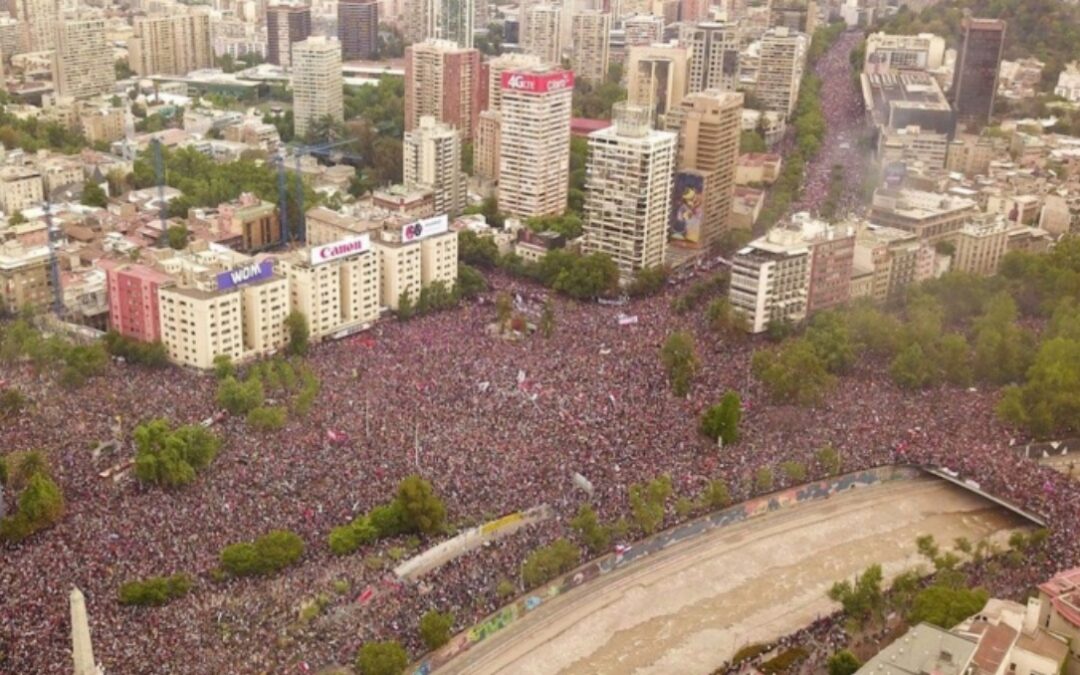
Nov 24, 2019
An opinion editorial by Alejandro Salinas Rivera, ICJ Commissioner (Chile)
Almost one month after the social protests began in Chile, the democratic political forces have reached an agreement that might enable the country to address the social crisis the protests evidenced.
During the past month, millions of people took to the streets throughout the country calling for deep reforms to guarantee economic, social and cultural rights. Most of the protests were pacific; however, some serious acts of violence were committed.
Initially, governmental authorities and other political leaders’ reactions failed to meaningfully address the concerns and demands of protestors and many in the general public. In addition, there were credible allegations of serious human rights violations committed by personnel of the security forces. For instance, the National Institute of Human Rights (NHRI) indicated it is representing 489 persons that suffered from criminal acts that may constitute violations to human rights, and there are more than 200 people injured in the eyes by the effect of rubber pellets.
Recent political agreement
On 15 November, political parties with parliamentary representation, except the Communist Party and small leftist parties, signed an agreement that establishes the beginning of a path to address the crisis: a procedure to adopt a new Constitution.
But why is this so important in Chile? Because the current Constitution was drafted and adopted in 1980 during the dictatorship. Despite the changes introduced since democracy after 1990, the fact is it still reflects the political and social model that governs the country. The Constitution has always been considered as a straitjacket to introducing social changes that Chile needs to effectively improve the quality of life of its inhabitants, as it does not give a prominent role to the State to guarantee economic and social rights.
The agreement established an itinerary for this constitutional change. First, there will be a popular referendum to be held in April 2020, to ask the people: a) Do you want a new Constitution? (Approve/Disapproved); and b) What kind of body should write the new Constitution? (Mixed Constitutional Convention or Constitutional Convention).
Second, after the results of the referendum, there will be an election to integrate the body that will draft the new Constitution in October of 2020, and after drafting the new Constitution there will be a popular referendum to ratify the draft.
This agreement raises hope for a profound change to address the social demands in Chile and to improve the institutional design for guaranteeing economic, social and cultural rights. However, it alone will not be enough to solve the demands expressed in the protests. There is a need to take immediate actions to achieve substantial agreements for the effective realization of economic, social and cultural rights, and to strengthen the State’s capacity to respond to social demands and to close the inequality gap.
Further steps that need to be taken
Additional tasks remain pending after the signing of this historic agreement. Some of them are,
- Adoption of specific political agreements that makes the constitutional process viable, and that guarantee that it answers to the current social demands. The first major agreement is to establish the terms of the referendum that will call the people to decide on the adoption of new Constitution and to call to the popular vote in April.
- Adoption of specific public policies to materialize economic and social rights that do not require constitutional changes, just strong political will. These would include, for example, real improvements of the pension, health and education system.
- Prompt and effective investigation into the actions of the police and security forces during the protests. This requires a complete review of the action protocols, and possibly, the adoption of changes within the institution.
- Prompt and effective investigation of the complaints against the police and the security forces for serious human rights violations and, where the evidence warrants, prosecute and sanction those responsible. Independent judges and the prosecutors are key to fulfilling this obligation.
- Prompt and effective investigations of the acts of violence committed during the protests that affected and damaged the country and bring those responsible to justice.
- Strengthening public institutions, such as the police forces (Carabineros), the National Institute of Human Rights, Government’ offices in charge of social public policies, among others.
The road that lies ahead is not easy and it is full of obstacles, but it opens a path of hope. For instance, changing the Constitution was a pending task of Chilean democracy, and now it seems possible. The next steps are to design a political and social model that guarantees equity, allows solidarity and fully respects human rights.









